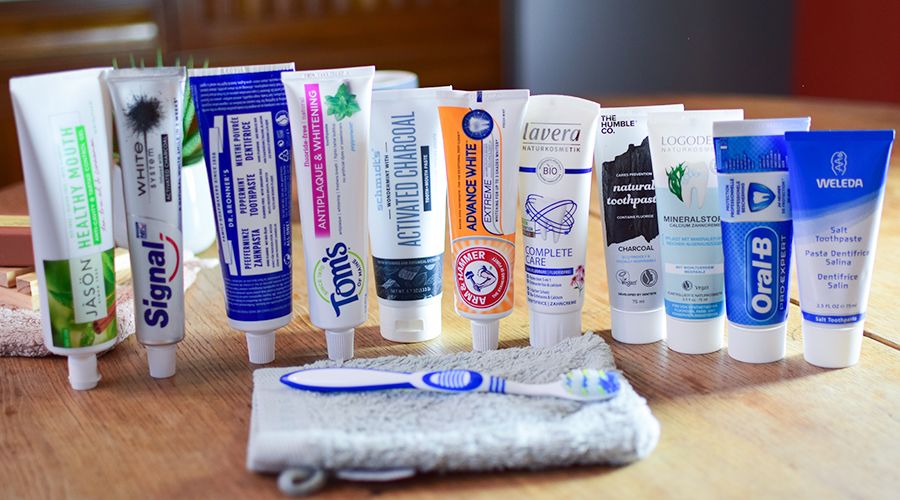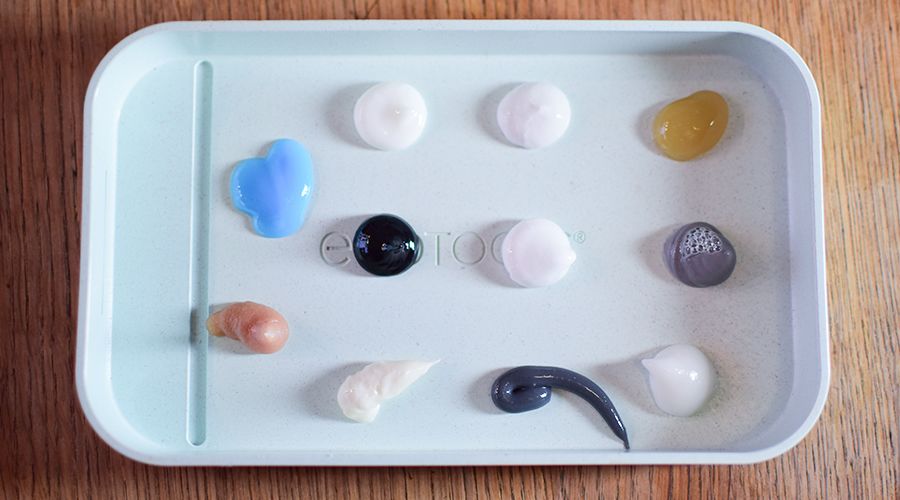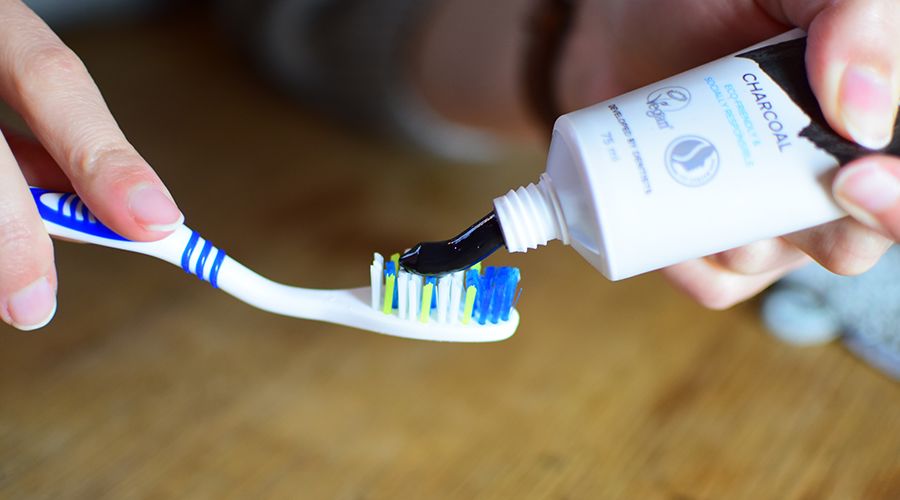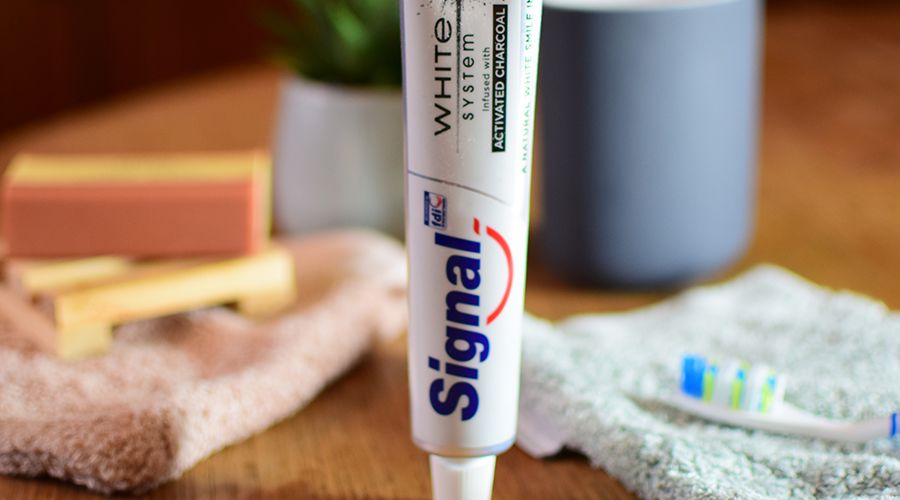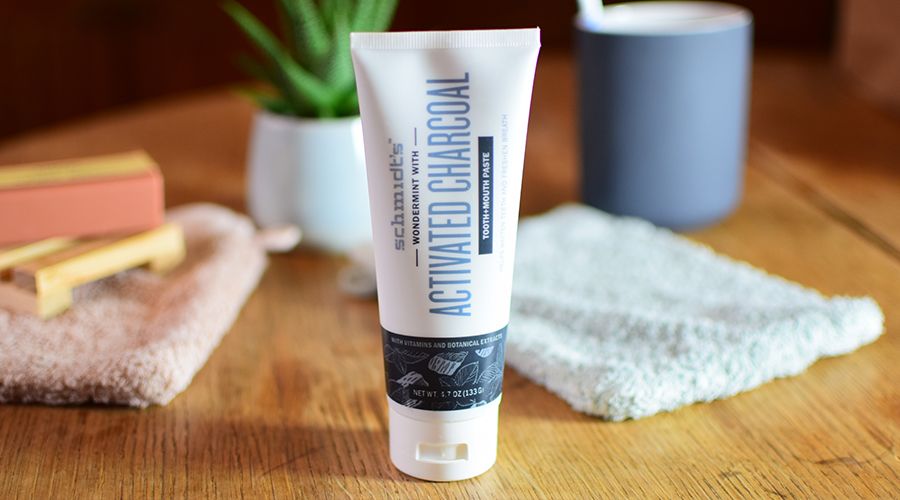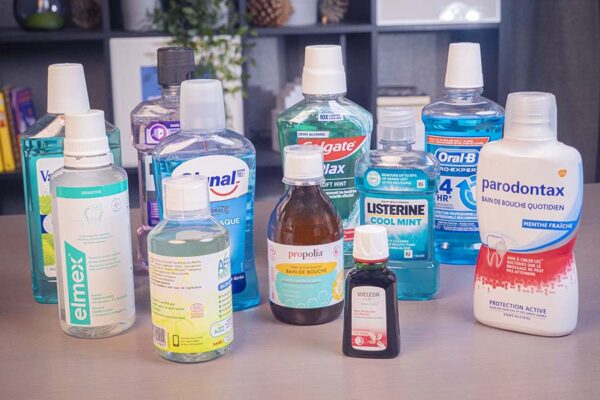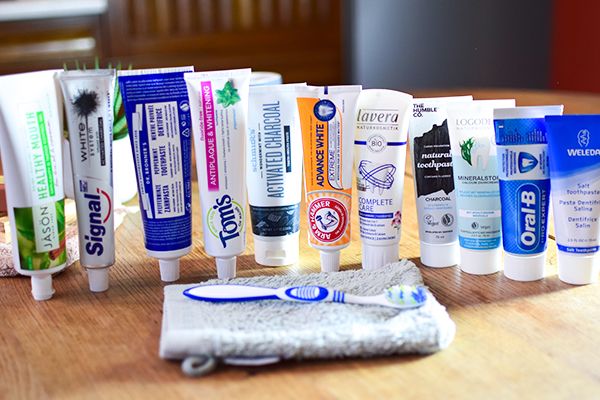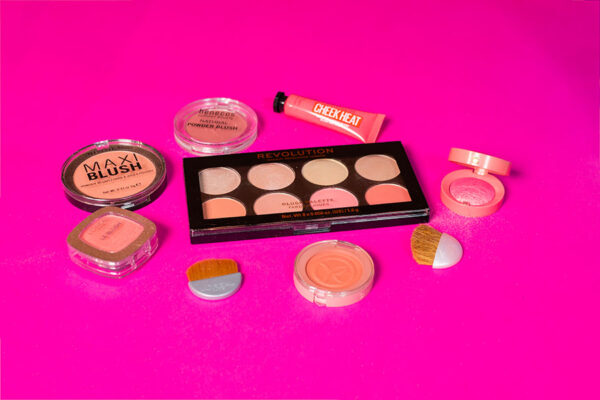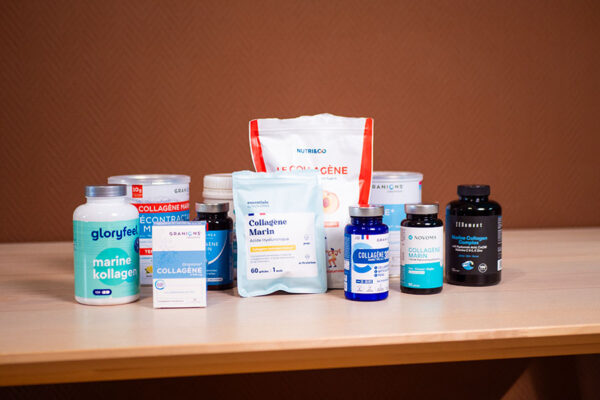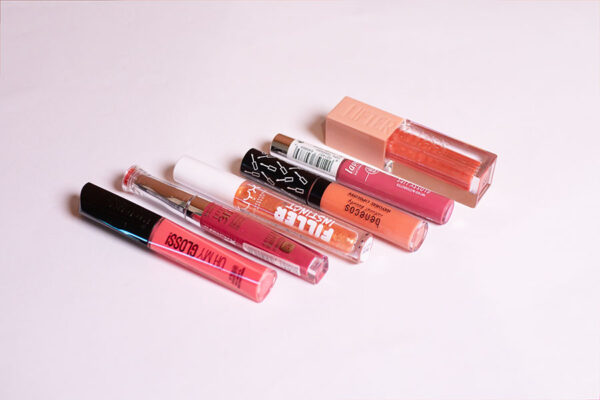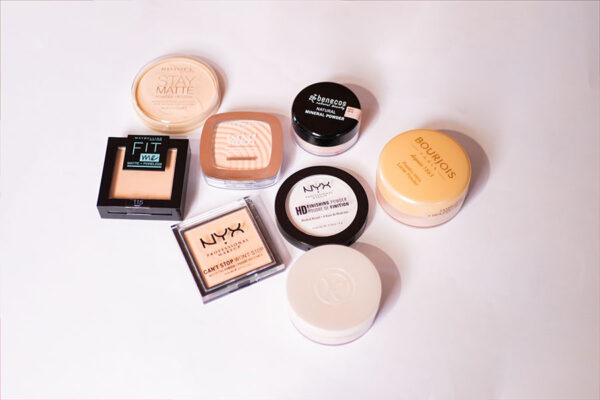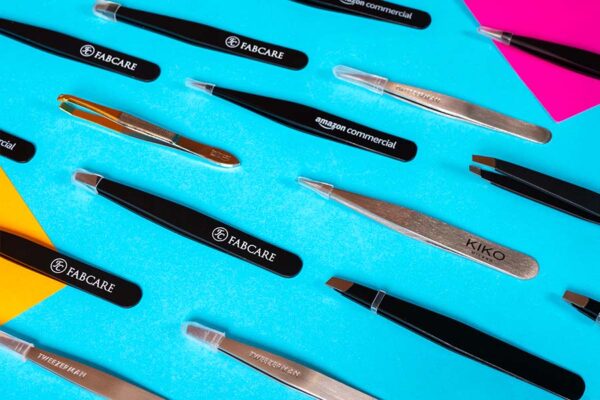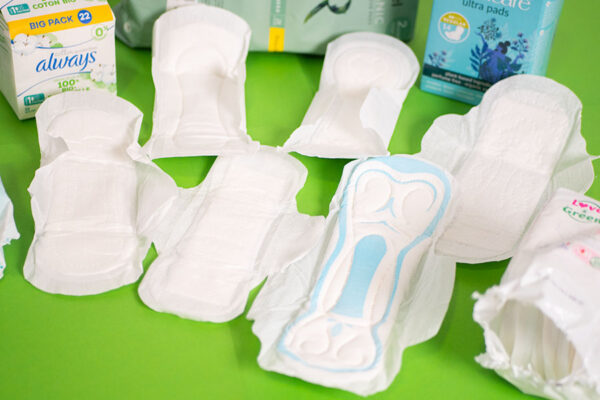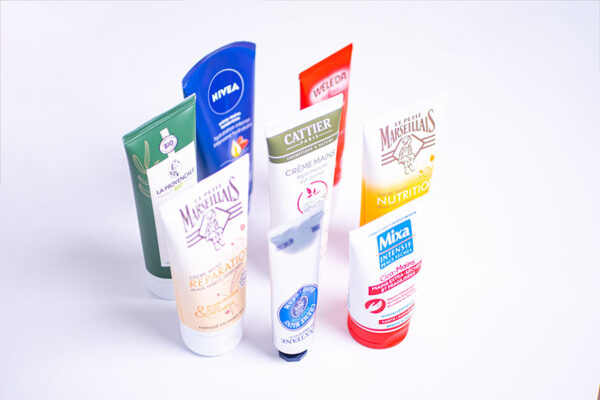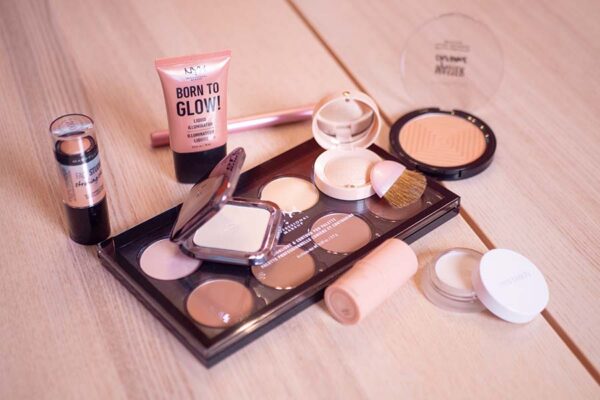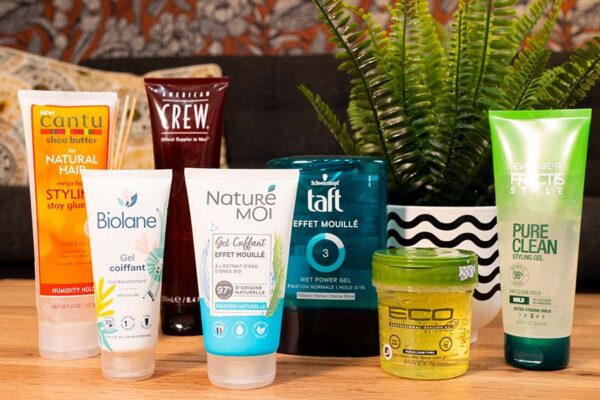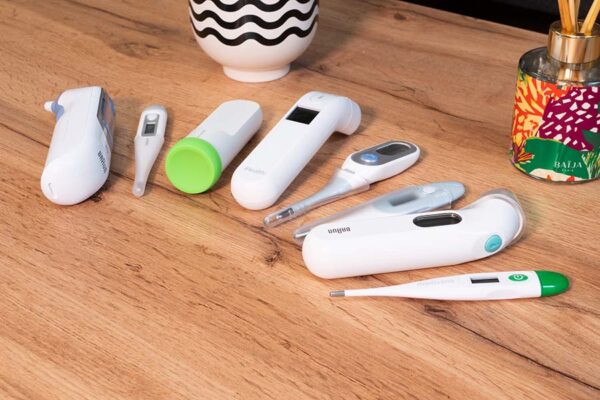Posted on 29 June 2022
Schmidt’s Activated Charcoal (133 g)
Its natural formula enriched with activated charcoal effectively fights tartar and dental plaque formation, while lightly whitening teeth. Its fresh mint aroma and clean composition are particularly appealing.
It cleans and refreshes the mouth while subtly whitening teeth thanks to the presence of activated charcoal in its formula. It also contains vitamins and plant extracts, suitable for sensitive teeth – and is fluorine-free. Its grey colour, although surprising at first glance, still leaves a fresh taste thanks to the presence of natural mint flavour. Although the texture is not very foamy, our tests revealed that it is easy and pleasant to use. The little extra? The tube, thanks to its large capacity, lasts a long time.
Jäson PowerSmile (170 g)
With its low price, its fresh minty taste and its notable whitening effect, this toothpaste has everything to please. Pleasant to use because it foams well and is suitable for sensitive teeth and gums, it also has an irreproachable composition.
The PowerSmile toothpaste prevents dental plaque and tartar while whitening teeth with extracts of natural agents such as bamboo powder, calcium carbonate and baking soda. Its minty taste, derived from essential oil, is quite present in the mouth – but it was not the most refreshing in our tests either. It does, however, have a great foaming power. Again, it is formulated without fluorine (unlike the gel version) and has an impeccable, certified cruelty-free composition.
Melvita White Teeth (75 ml)
Rich in purifying and whitening active ingredients, it ensures good oral hygiene and reinforces the brightness of the teeth, which it makes very white. Its minty taste and its certified organic composition are undeniably appealing.
Although its price is less attractive at first glance – which is why some people use it in alternation with another toothpaste – Melvita Dents Blanches is attractive not only because of its organic composition, certified by Ecocert, but also because of its effectiveness in making teeth smooth and shiny. It contains Guérande salt, bicarbonate and calcium carbonate – purifying active ingredients with whitening properties. Our tests confirmed that its taste, although slightly salty, remains pleasant and fresh thanks to the mint extracts.
Our selection
| Our choice, Best mid-range | Best budget | Best high-end |
|---|---|---|
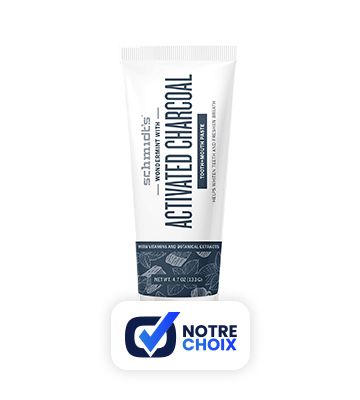 | 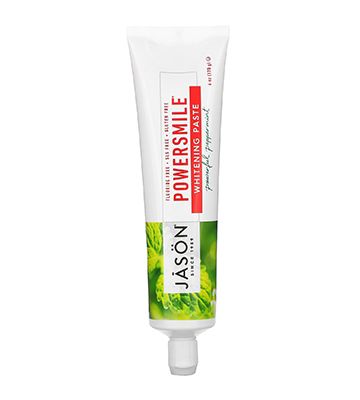 | 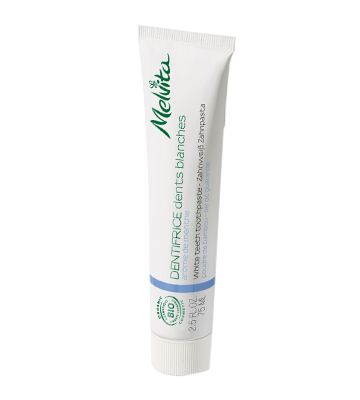 |
| Schmidt’s Activated (133 g) | Jäson PowerSmile (170 g) | Melvita White Teeth (75 ml) |
| Its natural formula enriched with activated charcoal effectively fights tartar and dental plaque formation, while lightly whitening teeth. Its fresh mint aroma and clean composition are particularly appealing. | With its low price, its fresh minty taste and its notable whitening effect, this toothpaste has everything to please. Pleasant to use because it foams well and is suitable for sensitive teeth and gums, it also has an irreproachable composition. | Rich in purifying and whitening active ingredients, it ensures good oral hygiene and reinforces the brightness of the teeth, which it makes very white. Its minty taste and its certified organic composition are undeniably appealing. |
Honorable mentions
Tom’s of Maine Anti-plaques + Whiteness (£18.97 for 2 x 156 g upon publication): anti-plaque, whitening, tartar-fighting… This toothpaste brings freshness to the breath thanks to its spearmint fragrance. It visibly reduces stains on the teeth and is suitable for the most sensitive. The presence of potentially irritating SLES in the formula, the similarity in taste and texture to Arm & Hammer toothpaste and the slightly higher price of the latter led us to choose other options.
The Humble & Co Natural Toothpaste Charcoal (£14.20 for 3 x 75 ml upon publication): interesting but not as fresh tasting. If we were impressed during our tests by its intense black colour, we were a little less impressed by its taste, which lacks a bit of freshness compared to the other charcoal options. That said, its rather thick texture has a pleasant foaming power. We also appreciate the fact that it is clean and contains fluorine, which makes it a solution to consider.
Why trust us ?
Selectos compares and tests hundreds of products to help you buy better. We sometimes receive a commission when you buy through our links, which helps fund our work. Learn more
How to choose your whitening toothpaste?
If you dream of having a Hollywood smile but do not want to go to the dentist for treatment, you may have considered using a whitening toothpaste. While you can rarely expect this type of product to be truly miraculous, it is often able to remove the most visible stains, making teeth whiter and smoother.
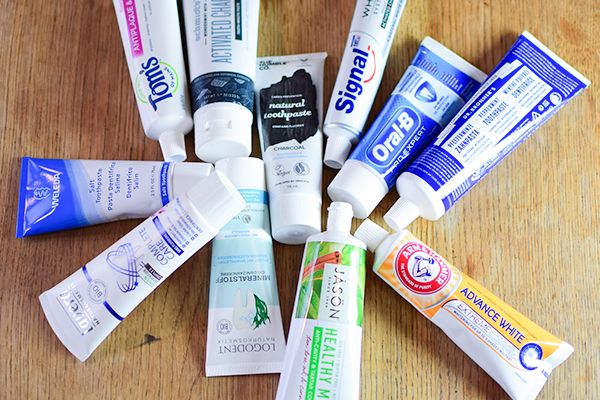
But using a whitening toothpaste is not without risk, and can be more complex than it seems. In order to choose a product with full knowledge of the cause, it is above all its composition that we feel is essential to consider:
- Bleaching agents – or abrasive agents: the most common are bicarbonate, silica, activated charcoal, or hydrogen peroxide. They actively clean tooth enamel, getting rid of stains or discolouration caused by certain foods. These active ingredients should be used carefully and sparingly, as they can damage the fragile enamel. While most brands offer safe products to use every day, it is difficult to find out the actual content of abrasives in toothpastes. For this reason, some experts advise that toothpaste should only be used once or twice a week.
- Fluorine: once recommended – even sometimes in the form of a supplement – to ensure optimal oral hygiene, fluorine is now increasingly controversial. According to some scientists, its effectiveness in protecting teeth is minimal, while ingesting too much of it is toxic. Therefore, while some people still consider it an essential part of their dental care routine, others prefer to avoid it.
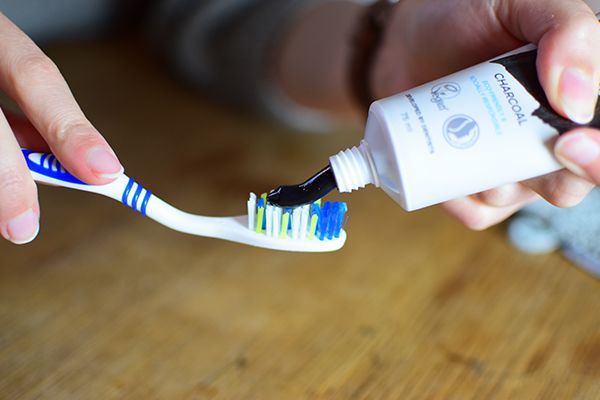
- Glycerin: often found in products with a more natural composition (and therefore generally of vegetable origin), it fights against the proliferation of bacteria and presents no risk to the enamel. However, in some cases, it may form a thin film on the tooth wall, thus hindering the beneficial contact between saliva and teeth. However, it is not harmful or toxic in itself.
- SLES: Sodium lauryl ether sulphate is frequently used in cosmetic products. It is a surfactant that allows products to foam and has a strong detergent power. It can be very irritating to the most sensitive people, and is also said to be very polluting. This component is often absent from organic or even simply natural toothpastes, which explains why they generally have very little foaming.
- Titanium dioxide: this mineral gives toothpaste its pretty white colour, but is currently strongly criticised, especially when used in cosmetics in the form of nanoparticles. These are more likely to enter the body, and are considered potentially harmful to the endocrine system, particularly in the event of inhalation or ingestion (which is far from reassuring in the case of toothpaste). It is found under the formula CI 77891.
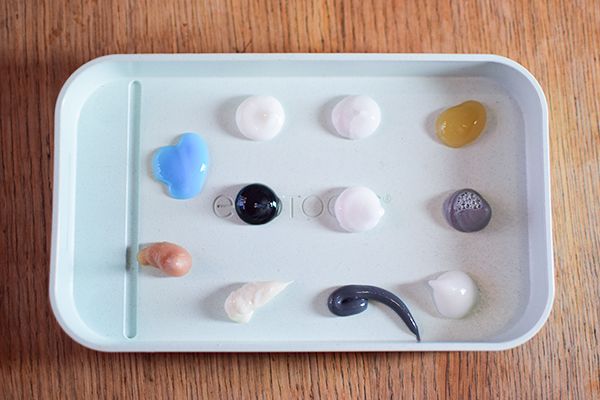
- Triclosan: this is an antibacterial chemical suspected of being an endocrine disruptor, the use of which is also strictly regulated. Although its presence is becoming increasingly rare, be sure to find out about it and avoid it as much as possible.
As toothpaste is a product that is likely to be swallowed frequently in small quantities, it is important to ensure that the ingredients are not harmful or controversial. Wherever possible and appropriate, we have therefore focused on toothpastes with the most natural ingredients possible – and these are becoming increasingly popular on the market.
Translated by Aylin Akturk
